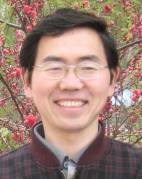|
 |
| ?張明權 |
譯題一:上海世博會“東熱西冷”
參考譯文:
The World Expo: Half Fire, Half Ice
Since its inauguration, Shanghai Expo has been “half fire, half ice”. In Pudong, the visitors are “mad” on the pavilions of Saudi Arabia, Japan and Germany so that they may line up more than 4 hours for a visit. In contrast, the visitors are less enthusiastic about the Best Urban Practice Area (BUPA) in Puxi. Although the organizers have recently released a package that says “if you collect 16 stamps from BUPA, you will gain access into hot pavilions”, little effect is produced. In order to “cool down” the heat of Pudong Garden, some performances scheduled on European Square have been moved to Youth Square in Puxi, Hu Jingjun, the vice director of Shanghai Expo Bureau, said on May 23.
本譯題開始就遇到一個難題,“東熱西冷”該怎么翻譯?按照解釋性翻譯原則,可以如不少網友譯成an imbalance of visitors between its Pudong and Puxi sites,或者more welcome in the east section than the west(語法瑕疵未及細究),但這樣翻譯總感覺形象性不夠,所以筆者嘗試譯成 half fire, half ice,帶有一定的創造性叛逆。接下來“追捧”一詞,也有一定難度,大多數網友對其處理的力度不夠,譯出的意思大致等于“受歡迎”,筆者覺得 “mad” about可以更好的揭示這些展館受歡迎的程度。下一個難點是“城市最佳實踐區”,作為專業術語,由于媒體的報道和實際命名的情況,一般譯成Best Urban Practice Area(BUPA),雖曰不好,但已經約定俗成了。至于后面出現的‘“捆綁”措施’一詞,則是一種package plan,多位網友譯成binding measure 或policy,因為binding可以做形容詞,表示“有約束力的”意思,所以這樣翻譯不可取。最后是“散熱”一詞,網友選擇cool down來對譯應該沒有問題,主要是漢英語在這里的比喻隱含是相似的,完全可以借用。
譯題二:你會接受情侶分床睡嗎?
參考譯文:
Are you willing to sleep in separate beds?
The era of sleeping in separate beds has crept in. More couples in China are taking action to subvert the traditional concept. The act of sleeping alone is not the beginning of marriage crisis, but to offer each other a private space, a perfect sleep, and turn the bedroom into a lounge to breathe freely. The loving couple is one but free and independent of each other. Since love is keen on novelty, there will be no love without fresh ideas to season the insipid life.
本譯題討論的分床睡問題,在西方是比較多的一種現象,在國內引起如此大的關注,或者上升到如此高度來討論,是與彼此不同的文化傳統有關的。所以在翻譯時,toning down(把話說得和緩點)是必要的。下面談一些具體的詞語翻譯。首先,“分居”不是living apart或separate without a legal divorce,而是sleep in separate beds的意思,不少網友把“新分居時代”直譯成new separation era是不可取的。下面是“顛覆”一詞,用topple或subvert都可以。“(夫妻)既是相愛的,又是自由的,既是合二為一的,又是獨立的”,這個句子應該在一起考慮翻譯,筆者譯成了the loving couple is one but free and independent of each other,正是呼應了開頭說得toning down的要求,有網友譯成they are one’s heart’s desire but not to be locked in the marriage cage, they are soul mates as well as independent souls,似乎發揮的太多,調子也太高了點。“愛情是個愛新鮮的家伙”一句也有點糾結,有不少網友翻譯成love is a guy who loves something new或者類似的說法,總覺得有點不妥,把“愛情”比作“愛新鮮的男人”,可能是受了時下電視劇的影響吧。有一個網友翻譯成了love is always inviting freshness挺好的,比筆者的love is keen on novelty讀起來更舒服點。最后一句也要綜合考慮,筆者把“在平淡的日子里支撐起彼此的愛意”翻譯成了to season the insipid life,對于season一次的選擇,也是頗費心思的。
譯題三:你愛插嘴說話嗎?
參考譯文:
Are you prone to cutting in words?
In daily life, you may often meet people who are constantly scrambling for the right to say. They are anxious to voice their opinions by cutting in words. There are others who will never stop once they start to talk. How boring they are! Superficially, these people are “fond of showing off”, but beyond what you see are usually deep-rooted psychological causes. In both cases of cutting in words and speaking incessantly, what hits the point is too much egocentrism, according to some experts.
在本譯題的翻譯上,Wiseme06, leo2010都提供了很好的譯文,特別是在“還有些人一開口就像滔滔江水,綿綿不絕,讓人煩不甚煩”上,二位網友分別譯成了Some others like holding forth in the most boring way和Or some people could talk the hind leg off a donkey so that it will get on your nerves,對英語習語的使用非常到位。有趣的是兩位網友都使用了習語,但前者用的是hold forth,后者用的是talk the hind leg off a donkey來對譯漢語的“一開口就像滔滔江水,綿綿不絕”,其他網友使用的成語還包括dash along, talk a mile a minute等,筆者這里的譯文不再使用習語,上述幾個習語都挺好的,只是“像滔滔江水,綿綿不絕”這個比喻,還真沒辦法從字面上對等起來。
這篇短文的其他值得注意的詞語包括:“愛表現(showy)”、“愛插嘴(striking in, interception addicts)”、“剎不住車(talkative, gush out)”,括號里的英文是從網友的翻譯中選出來的,這段文字的翻譯佳譯頗多,除了上述提到的外,還有不少佳句佳譯。不過最后想說一點語法問題,“不管…還是…”不能譯成no matter…or…,一方面英語中沒有這個句型,另一方面這里邏輯上是“合取”而非“析取”關系。
英譯漢 真的譯成漢語了嗎?
翻譯中的增詞與減詞
翻譯中的勘誤與隱喻“取舍”
英譯漢時不要掉入理解的陷阱
翻譯語言同樣可以生動形象
翻譯中對網絡資源利用
專家簡介:
張明權,安徽省固鎮縣人,江蘇大學外國語學院副教授,英語語言文學碩士,上外博士課程班進修。主要從事英語語言學和翻譯學研究,在國內外學術期刊發表論文10余篇,出版譯著兩部,發表其他文章20余篇,有大量翻譯實踐經驗,翻譯總字數接近200萬。Email: mqzhang@ujs.edu.cn。
(中國日報網英語點津 編輯:蔡姍姍)